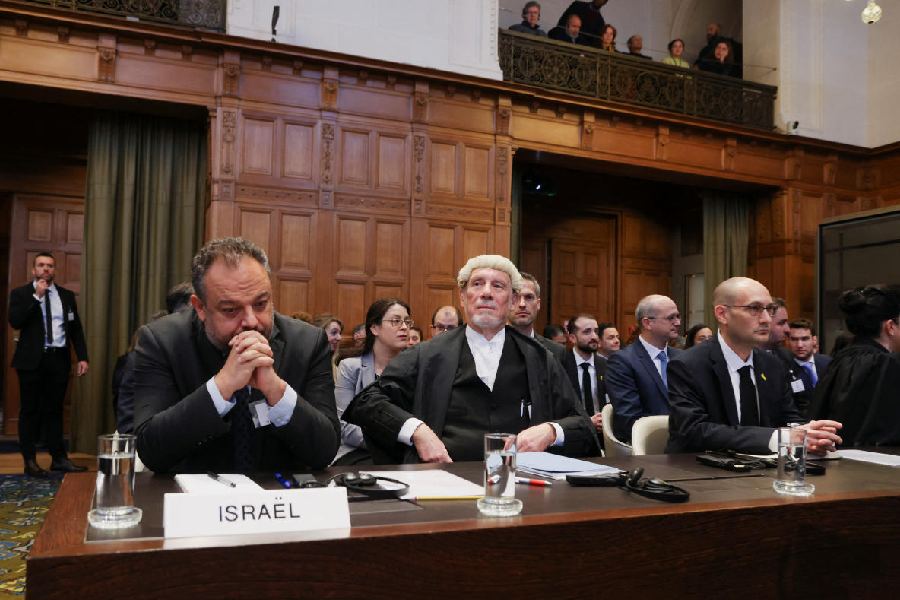A top U.N. court opened hearings on Thursday in a case in which South Africa demands an emergency suspension of Israel's military campaign in Gaza, where it says Israel is committing genocide against Palestinians.
The International Court of Justice (ICJ) will hear South Africa's arguments on Thursday and Israel's response to the allegations on Friday.
It is expected to rule on the emergency measures later this month. The court will not rule at that time on the genocide allegations - those proceedings could take years.
"Our opposition to the ongoing slaughter of the people of Gaza has driven us as a country to approach the ICJ," South African President Cyril Ramaphosa has said of the genocide accusations, rejected by Israel and its top backer, the United States.
With the politically-charged case attracting global attention, supporters of both sides of the case planned marches and rallies in The Hague.
Thousands of pro-Israel protesters marched in freezing temperatures in the city centre early on Thursday, carrying Israeli and Dutch flags and posters with images of people taken hostage by Hamas.
Gabi Patlis, from Tel Aviv, who now lives in the Netherlands, said it was painful to hear Israel accused of genocide.
"Especially after 7 October - we were the ones that were attacked," he told Reuters at the rally.
The court's decisions are final and without appeal but the court has no way to enforce them.
ISRAEL SAYS ALLEGATIONS BASELESS
Israel has rejected the accusations of genocide as baseless and accused Pretoria of playing "advocate of the devil" for Hamas, the Palestinian Islamist militant group it is waging war against in Gaza.
Israeli Prime Minister Benjamin Netanyahu said on social media platform X: "I want to make a few points absolutely clear: Israel has no intention of permanently occupying Gaza or displacing its civilian population."
South Africa and Israel are both parties to the 1948 Genocide Convention, which obliges them to not commit genocide and also to prevent and punish it.
The treaty defines genocide as "acts committed with intent to destroy, in whole or in part, a national, ethnical, racial or religious group".
Israeli forces launched their offensive after fighters from Hamas-ruled Gaza carried out an Oct. 7 cross-border rampage in which Israel says 1,200 people were killed and 240 abducted.
Since then, the offensive has laid much of the densely populated Gaza Strip to waste, and nearly all its 2.3 million people have been driven from their homes at least once, causing a humanitarian catastrophe.
Post-apartheid South Africa has long defended the Palestinian cause, a relationship forged when the African National Congress' struggle against white minority rule was cheered on by Yasser Arafat's Palestine Liberation Organisation.
In its court filings, South Africa cites Israel's failure to provide food, water, medicine and other essential humanitarian assistance to the Palestinian enclave.
It also points to the sustained bombing campaign which has killed over 23,000 people according to Gaza health authorities.










